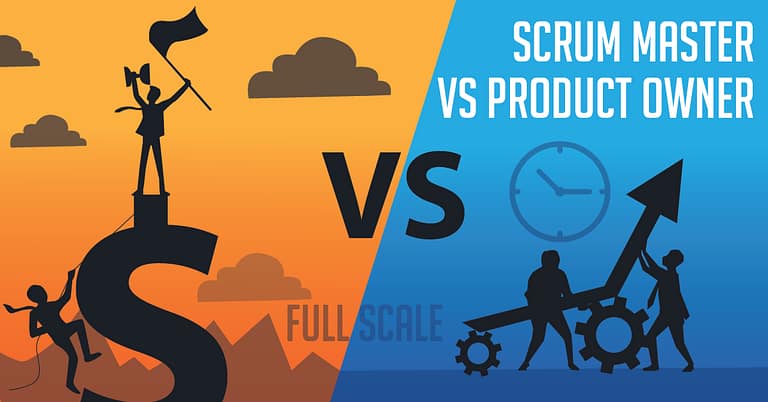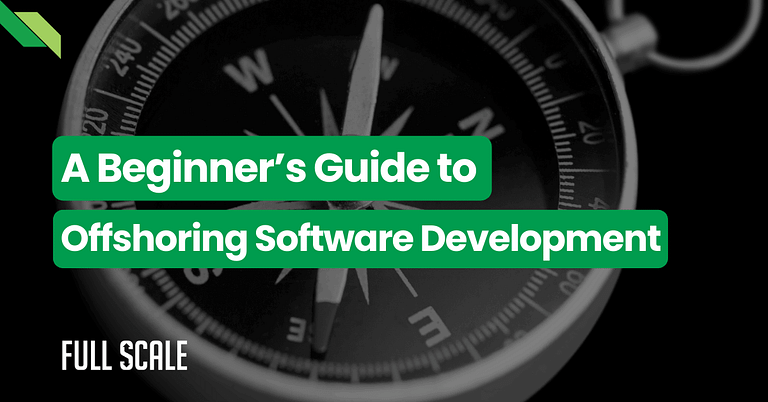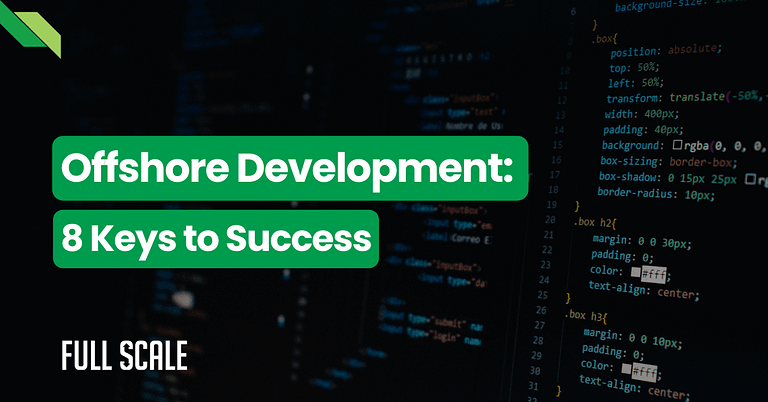There’s no denying that the Scrum Master vs. Product Owner debate is well and alive to this day. While both roles seem similar, each one has specialties that distinguish them from the other. In today’s article, we’ll learn what these roles entail and how to tell them apart.
In the world of Agile development, two of the familiar fixtures that work closely together are Scrum masters and Product owners. Their job roles tend to overlap; which is easy to see why they are often confused with one another.
But, they are separate units whose skills bring unequaled value in any large-scale project. It’s important to thoroughly understand each role and its responsibilities to eliminate confusion on who’s doing what. Let’s learn how these roles intersect and keep development teams right on track.
Who is a Scrum Master?
A Scrum Master is a software expert that ensures a team follows the principles of Scrum. It’s their job to oversee the smooth communication between leaders and team players when accomplishing product goals.
Scrum masters use their expertise in Agile project management to champion project success and team productivity. Essentially, they are accountable for the “how”—coaching the team on the best way to perform the Scrum process.
Since they can work in different settings, their responsibilities may also vary. They can take the role of a project manager, coach, or facilitator, depending on what’s needed in a project. While their tasks may change from day to day, their primary responsibilities include:
- Coaching the team on Scrum best practices
- Facilitating stand-up huddles or other project-related meetings
- Monitoring project progress using project management tools
- Identifying and removing distractions or roadblocks
- Resolving known issues or conflicts
- Providing smooth and open communication among team members
Scrum Master Skills
A Scrum master needs both soft and hard skills to advance in this career. Let’s break down each one of them.
Soft Skills
These are the common soft skills that Scrum masters will find helpful in leading a development team.
- Communication skills – enables them to collaborate with team members and stakeholders easily.
- Problem-solving skills – crucial to understanding and resolving issues in projects
- Coaching skills – this helps them motivate the team to put out their best work possible and enhance their productivity.
- Risk management skills – should be knowledgeable in identifying, preventing, or reducing risks and technical debt.
Hard Skills
Scrum masters need to possess specific technical skills like Scrum framework and software development. Also, familiarity with technology trends will undoubtedly give them a great advantage for this role.
- Scrum and Agile project management – ensure that teams follow the Scrum methodologies when processing tasks and projects. Having a Scrum Master Certification will strengthen their expertise in Agile software development.
- Software development – a strong background in coding, programming languages, software architecture, and software tools is necessary for building software products.
- Project management tools – advanced skills in project management tools allow them to organize, collaborate, and manage tasks, resources, budgets, priorities, etc.
Who is a Product Owner?
A product owner is an essential member of the Agile team responsible for maximizing the value of a product. This goal is made possible through the collective efforts of the development team.
As the name suggests, this individual takes ownership of the product—all its features and functionalities. Product owners have a strong influence on its development cycle; leading the team to build the product features.
Moreover, they are the primary stakeholders representing the customers to the software team. This makes them the official communicators about the product in the industry.
Their key role is to create the vision for the product and communicate it to team members. They also manage the product backlogs. Therefore, anyone who wants to change the backlog may do so through the product owner.
Here is a rundown of the product owner’s main responsibilities:
- Collaborates with product managers in building the product vision and roadmap
- Creates and manages the product backlog
- Works with the Scrum master to confirm that the development process echoes the product vision
- Prioritizes user stories for the team to work on
- Shares technical expertise about the product to the team and other stakeholders
- Acts as a customer advocate (identify customer needs and solve their problems)
- Works alongside cross-functional teams in planning the product release
Product Owner Skills
A product owner needs a wide range of leadership and technical abilities to be truly effective in this position.
Soft Skills
Having the right social qualities is extremely important if the product owner were to influence the team with their job. These are the soft skills to take note of:
- Communication skills – a high-level verbal, written, and listening ability allows them to communicate the product vision with the team.
- Project management skills – proficient at managing deliverables and meeting or exceeding product goals
- Teamwork skills – product development is a collaborative effort; product owners should know how to cooperate to accomplish tasks.
Hard Skills
Product owners should have solid expertise in the product and the market they want to serve. On top of that, a deep understanding of software concepts will help them stand out for this role.
- Product release – proven track record in launching a product
- Subject matter expertise – a strong background about a specific product and industry; business training is also highly encouraged
- Technical core concepts – basic to advanced knowledge in Scrum, software development, CI/CD, object orientation, software testing, etc.)
Scrum Master vs. Product Owner: What’s the difference?
The roles of a Scrum master and product owner are equally important in managing an Agile development team. Their contributions are necessary for the team to understand the “why” of the development process.
But, while the two complement each other, it doesn’t mean they are the same. The Scrum Master vs. Product Owner conflict stems from the confusion surrounding the nature of their work. Hence, we’re here to distinguish one from the other.
1. Product Backlog Management
A product backlog is a critical component in Agile software development. It embodies all the tasks needed for the completion of the project. Generally, the product owner is the main driver behind a product backlog. They identify the items to include and which ones to prioritize.
Once the product owner has finalized the product roadmap, the Scrum master will bring its vision to life. The latter ensures that the resources available mirror the needs of the customers and stakeholders. If the product backlog changes along the way, it’s the Scrum master’s job to inform the team about it.
2. Technical Expertise
Can you consider someone a Scrum master if they don’t know anything about Scrum? Definitely not. Chief among their skills should be proficiency in all things Scrum.
Scrum masters ensure that the product development aligns with the Scrum concept and values. Likewise, they must provide strong technical knowledge that surpasses a typical product owner’s. Of course, this requires an in-depth understanding of the Scrum framework for them to teach others to use it.
In contrast, a product owner’s expertise hinges on optimizing the product’s value. They bring to light the right product vision for the development team to work on. Hence, product owners are generally knowledgeable about product backlog, roadmap, sprint planning, and reviews.
3. Day-to-day Activities
The daily work of a Scrum master involves coaching, performance management, conflict resolution, clearing obstacles, and assisting the team. They are accountable for the “how” of the Scrum process. This is done by adequately training the team on using the framework. In addition, Scrum masters are authorized at defining when a specific task is “done”.
On the other hand, product owners are at the helm of producing the best product possible. Their role is all about assuring product success that meets customer needs. They are the key resource on the “why” of product development.
So, their daily activities should highlight why they are building the product. They also underline its usefulness to stakeholders and customers.
Scrum Master vs. Product Owner: Which one should you choose?
In a nutshell, Scrum masters and product owners have significant roles in Scrum project teams. Both enhance the team’s performance so they can achieve the best results. While some of their roles overlap, they have clear distinctions that tell them apart.
Scrum Masters are the go-to experts that ensure the overall success of a project. They coach the development team to follow the Scrum values and methodologies. Additionally, they collaborate with product owners to establish the Agile principles in product development.
On the contrary, product owners are your product’s “CEO”. They know all the ins and outs of maximizing the value of a product. Hence, their superpowers come from interacting with the team and stakeholders to deliver exceptional products that customers will love.
So, before you get ahead of yourself with your project, understand what these experts can bring to the table. Invest your time learning about their roles. Or better yet, hire an offshore software company to do this endeavor for you.



